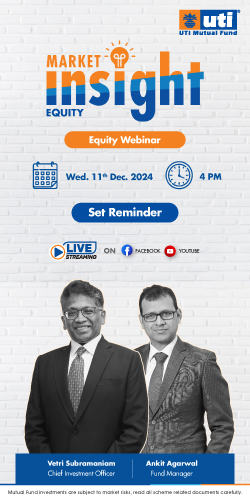A research note published by Advisor Group gives suggestions on how advisors can overcome any hesitations about asking referrals.
How do you overcome any hesitations you may feel about asking for referrals in the right way and at the right time. What is the right way? The answer is simple: It is any way that makes the request feel natural within your client relationships. Here are a few suggestions for finding that way:
- Don’t try to justify to clients (or other referrers) why referrals are important to you. Referrals are important to almost all professionals and small businesses. To people who know you well, it is obvious that you welcome referrals.
- Don’t ask for referrals in the middle of client counseling or problem-solving sessions. The time belongs to the client.
- Don’t ask for referrals in predictable or repetitive ways, such as at the end of each quarterly client review.
- Do ask for referrals when clients are discussing their satisfaction with your services. (The Client Satisfaction Survey can help to trigger these discussions.)
- Do ask for referrals during casual conversations, when discussing personal, family or lifestyle issues.
- Do ask for referrals with brief, open questions that seem casual and non-threatening, such as “What do you know about…?” or “What’s happening with…?”
With a little practice, you can ask a question that opens the door to a referral without explicitly saying that referrals are your goal. Some people will sense where you are going and others won’t, but it doesn’t really matter. In either case, the pressure is lower, and the “exit signs” for the conversation are clearly marked and easy to reach. Here’s an example:
Advisor: “What do you know about Tim and Paula Hudson? I heard they are selling their business.”
Client: “I heard that, too. I don’t know them very well. I see them at church.”
Advisor: “I didn’t know they go to your church. That’s interesting.”
The advisor has given the client the choice of talking more about the Hudsons or dropping it. In the next few seconds, perhaps a mutual friend (or a centre of influence in the church) can be identified. If not, the advisor has learned a little about the client’s circle of friends, and nobody feels pressure.
In general, the more you know about clients’ families, activities, lifestyles and social circles, the more likely you are to get referrals. By asking gentle, natural questions, you can find out how much people want you to know about these areas, or how much they want to maintain their privacy. It’s possible to build strong relationships and get referrals from even the most private people, but only if you ask for referrals in low-pressure ways.
The value of spontaneous asking
Imagine that you are meeting one of your best clients for a scheduled review. This client is a friend of many important people in town and also acts as a COI in several networks. But he/she has never given you referrals, in part because you’ve never asked. In this conference, you are determined to ask for a referral. As the review starts, you are still grappling over the best way to ask. As the end of the meeting nears, pressure builds. You’re not even listening to the client anymore. You’re debating with yourself: Is this the right time? What’s the right way?
Why put so much pressure on yourself? Here’s another approach:
The client walks in the door and you spend your usual five minutes chatting about family, work, golf, etc. You ask the client: “By the way… what do you know Bailey Murphy?”
The client says: “I know him. Why do you ask?”
You say: “He’s exactly the kind of person I want to work with.”
Now, the client is free to talk about Bailey if he wants. Or the client can exit and return to family, work and golf. In either case, you’ve put two important ideas on the table in a low-pressure way:
1. I’d like your help in making my business grow.
2. Please help me meet people like Bailey Murphy, if you can and if you want.
Don’t “build up” to a referral by explaining the reason you’re asking for one. That just takes up valuable time and increases pressure.
Do be alert to spontaneous opportunities to ask referral questions. The best opportunities occur when conversation is casual and warm and each person is showing interest in the other. Try to make it easy for the client to talk freely or exit. When a person is given two or three openings to talk about referrals and exits every time, make a mental note that this probably isn’t a good referral-giving candidate.
Another way to build “referral-asking confidence” is to
self-evaluate five opportunities to ask for referrals during calls (phone or
in-person) with clients. After the five calls, identify the strengths and
weaknesses you’ve experienced.
Prepared based on a research note published by ‘Referral-Generating Techniques of Top Financial Advisors’
Advisor Group is one of the largest independent broker-dealer networks and a division of AIG Financial Distributors.




